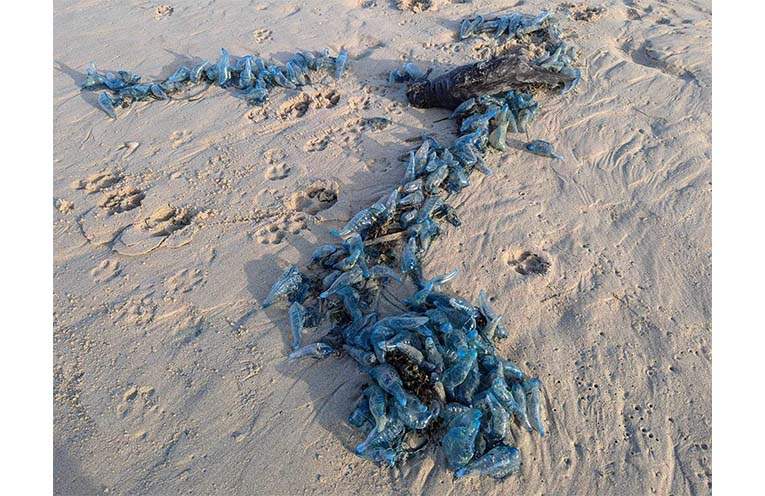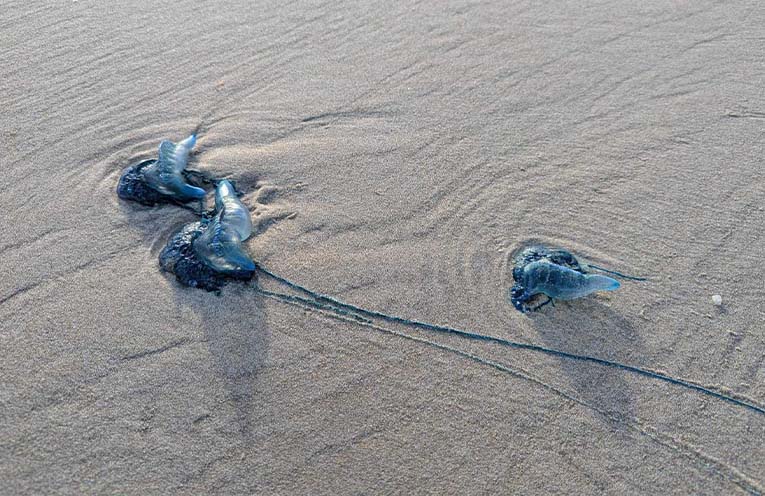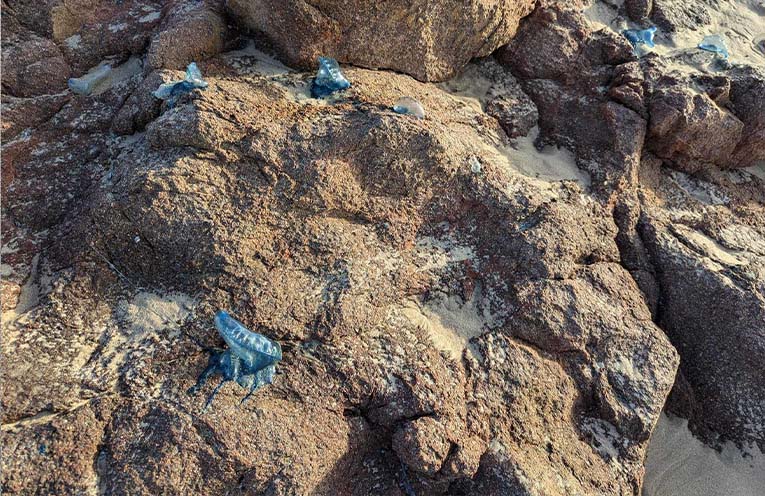
BIRUBI Beach is popular all year round with locals walking their dogs and enjoying the spectacular surf and sunsets.
But some tourists may not be aware that there is one local resident who starts to appear in numbers at this time of year and can deliver a painful sting.
 Advertise with News of The Area today.
Advertise with News of The Area today.It’s worth it for your business.
Message us.
Phone us – (02) 4981 8882.
Email us – media@newsofthearea.com.au
Anna Bay resident Renee Bonafe was taking her usual Sunday morning stroll on 27 October, when she observed the local phenomena.
“I saw them on Birubi at low tide about 7am. Thousands of them,” she said.
“Enjoy the beach, folks, but keep an eye out for these little guys”.
Known locally as a bluebottle, it is part of the man-of-war species that includes the Pacific Man o’ War and the Portuguese Man o’ War.
According to the Australian Museum, the latter is more commonly found in the Atlantic Ocean and is the more painful of the two.
The Portuguese Man o’ War is not technically a jellyfish, but is actually a member of the Neuston which is a community of organisms that live on the surface of the ocean.
It has numerous microscopic venomous Cnidocytes which can deliver a sting powerful enough to kill fish and in some very rare cases, humans.
Detached tentacles and specimens that wash up on shore can hurt just as much as those in the water and remain potent for days after the creature’s death.
Stings usually cause severe pain to humans, lasting one to three hours, leaving red whip-like welts on the skin which can last two or three days.
In some cases, the venom may travel to the lymph nodes and can cause symptoms that mimic an allergic reaction, including swelling of the larynx, airway blockages, shortness of breath and cardiac distress.
Medical attention for those exposed to large numbers of tentacles may become necessary to relieve pain if it becomes excruciating or lasts for more than three hours.
The species is responsible for up to 10,000 human stings in Australia each Summer, particularly on the East Coast.
Treatment for sting pain is immersion in 45 deg C water for 20 minutes.
The Cnidocytes in bluebottles react differently to those found in Box Jellyfish, so the application of vinegar may not work.
Bluebottles can discharge more venom if vinegar is applied.
For more information, visit beachsafe.org.au.
By Simon EKINS

